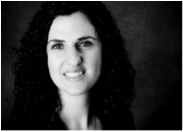When I did something wrong, I wasn’t grounded or sent to my room. My mother threatened me with becoming a spinster.
“No one will want to marry you if you behave like that,” she’d call out.
I heard a longer version of that refrain once, and it affected me so deeply I vowed never to behave in a way that would warrant hearing it again. I was ten years old, and I had disobeyed my grandfather. He had asked me to apologize to my mother after a fight we’d had, and I’d refused.
As soon as I heard the door knob to my bedroom turn, I knew I was in serious trouble. Mama wasn’t one of those sitcom parents who followed their crying children into their room to see what was wrong. If she came after me, that meant she had something to say.
“You’re getting too old for this kind of behavior,” she said, standing in my doorway in an over-sized sweatshirt, her hands resting on the waistband of her leggings. “When I was your age, I had no mother, and I was taking care of the house and all my brothers and sisters. In Iraq, girls your age are already grown-up women. Soon people are going to start looking at you for marriage. Don’t you want them to have heard how there is a mature, respectful girl in this house who takes care of her family? Don’t you want people to beat up our doors and pray to be so lucky to have a girl like you?”
She told me to kiss my grandfather’s hand, and when I came out of his room, she motioned me over to her, kissed my cheek, and whispered hababa. Good girl.
Her approval washed me clean. I wanted to be the kind of daughter I imagined my mother had been—quiet, helpful, responsible.
When I got engaged at eighteen, it had less to do with the person I was marrying than it did with succeeding in being desired, in being chosen, in being good. I had just finished high school, and this too was a graduation of sorts. Being picked by a boy and his family was a diploma that marked the end of my childhood, that declared my virtue to our immigrant community. I didn’t question the reasoning behind this because I was not alone. So many of my Muslim friends were getting engaged and married, and although we were all too dedicated to our college course work to say as much, we were proud of our coupling. Not only were we good students, but we were wanted.
But marriage, I would soon discover, was not a reward. It was not diploma that I could hang on the wall and admire because marriage is not passive in any way. It is the constant negotiation of your changing self with the changing self of your partner. Realizing this was a rude awakening. I had chased an accomplishment that felt like a burden, that made achieving other milestones in my education and career more complicated. For the first time, I looked at the Muslim girls who were not married, who’d gone to graduate school, medical school, and law school and wondered why I had volunteered to live my life with another before I’d lived it for myself. It couldn’t have been for the sake of Islam because these women were Muslim as well. It couldn’t have been because of Arab culture because many of these women were Arabs too.
I was twenty-five when I had my first child. Holding this fragile life in my arms made me think of my mother constantly. What would she do, I’d ask myself. What did she do, I’d try and remember. This imitation was so active, so deliberate, so conscious that the mental knot I’d been carrying with me for years unraveled. There was more to my engagement than a desire to be good, to follow the rules, or to be chosen. I wanted to be like her. I wanted to be good in her eyes. I still do.
—
Huda Al-Marashi is an Iraqi-American at work on a memoir about the impact of her dual-identity on her marriage. Excerpts from this memoir are forthcoming in the anthologies Becoming and In Her Place. Her poem, TV Terror, is a part of a touring exhibit commemorating the Mutanabbi Street Bombing in Baghdad. She holds a B.A. from Santa Clara University and a M.Ed. from Framingham State College. She is a 2012 Creative Workforce Fellow, and she lives in Ohio with her husband and three children.












